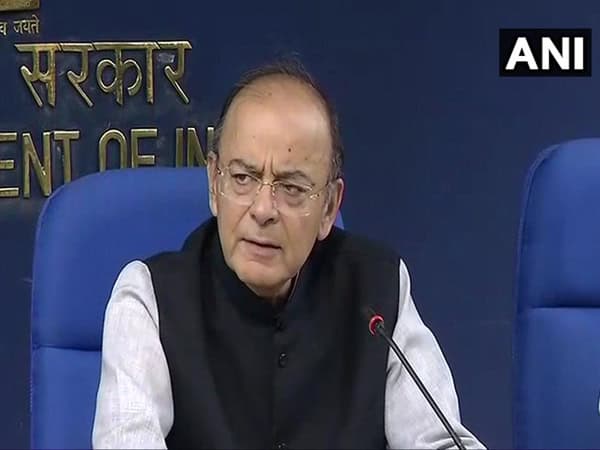New Delhi [India]: The Goods and Services Tax (GST) Council, in its 26th meeting held earlier today, stated that the e-way bill for inter-state movement of goods is required to be generated only where the value of the consignment exceeds Rs 50000.
The council noted that at present, there is no requirement to generate e-way bill where an individual consignment value is less than Rs 50,000, even if the transporter is carrying goods of more than Rs 50,000 in a single conveyance. Furthermore, the value of exempted goods has been excluded from the value of the consignment for the purpose of e-way bill generation, the council said.
In terms of public conveyance, the committee said this would be included as a mode of transport, and therefore, the responsibility of generating an e-way bill in case of movement of goods by public transport would be that of the consignor or consignee.
Railways, the council said, was exempted from generation and carrying of the e-way bill, provided that without the production of an e-way bill, railways would not deliver the goods to the recipient. However, railways are required to carry invoice or delivery challan, it said.
Furthermore, the time period allotted for the recipient to communicate his acceptance or rejection of the consignment would be the validity period of the concerned e-way bill or 72 hours, whichever is earlier.
In case of movement of goods on account of job-work, the council directed that the registered job worker can also generate the e-way bill, while the consignor can authorise the transporter, courier agency and e-commerce operator to fill PART-A of the e-way bill on his behalf.
Among other provisions, the council noted that the movement of goods from the place of the consignor to the place of transporter up to a distance of 50 kilometre does not require filling of PART-B of the e-way bill, and only requires a generation of PART-A.
If the goods cannot be transported within the validity period of the e-way bill, the transporter may extend the validity period in case of transshipment or circumstances of an exceptional nature, the council said. However, the validity of one day will expire at midnight of the day immediately following the date of generation of the e-way bill.
Once verified by any tax officer, the same conveyance will not be subject to the second check-in any State or Union territory, unless and until, specific information for the same is received.
In case of movement of goods by railways, airways and waterways, the council said the e-way bill can be generated even after commencement of movement of goods.
On a related note, Finance Minister Arun Jaitley while chairing the meeting said e-way bill system for inter-state transportation of goods would be implemented from April 1, following which the states will be categorised into four lots for the implementation of the provision.
For intra-state movement of goods, the e-way bill system will be introduced at a later date in a phased manner, but not later than June 1. (ANI)

